English primary school abroad
This content was developed and approved with active participation of Lucy Heller.
In the process of preparing the material, we referenced the following sources:
- https://www.eursc.eu/en/European-Schools/studies/studies-organisation
- https://www.statista.com/statistics/1078190/students-per-class-in-europe/.
-
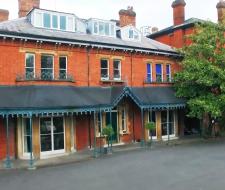 Program namedateAgeFeesShow all courses (1)Primary schoolLast booking 3 weeks agoAll year round7-12
Program namedateAgeFeesShow all courses (1)Primary schoolLast booking 3 weeks agoAll year round7-12 -
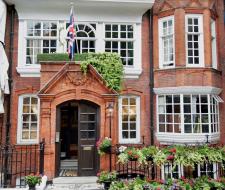 Program namedateAgeFeesShow all courses (1)Primary schoolLast booking 2 weeks agoAll year round8-13
Program namedateAgeFeesShow all courses (1)Primary schoolLast booking 2 weeks agoAll year round8-13 -
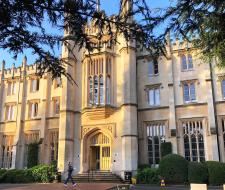
-
 Program namedateAgeFeesShow all courses (2)Primary schoolLast booking 1 weeks agoAll year round3-7
Program namedateAgeFeesShow all courses (2)Primary schoolLast booking 1 weeks agoAll year round3-7 -
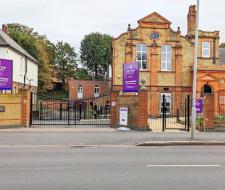 Program namedateAgeFeesShow all courses (4)Primary schoolLast booking 4 weeks agoAll year round7-11
Program namedateAgeFeesShow all courses (4)Primary schoolLast booking 4 weeks agoAll year round7-11 -

-
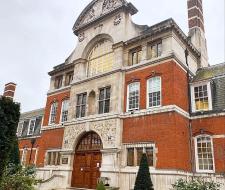 Program namedateAgeFeesShow all courses (3)Primary schoolLast booking 1 weeks agoAll year round11-14
Program namedateAgeFeesShow all courses (3)Primary schoolLast booking 1 weeks agoAll year round11-14 -
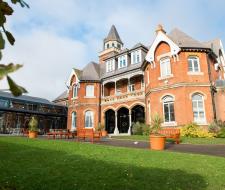 Program namedateAgeFeesShow all courses (4)Primary schoolLast booking 6 weeks agoAll year round4-11
Program namedateAgeFeesShow all courses (4)Primary schoolLast booking 6 weeks agoAll year round4-11 -
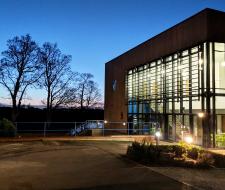 Program namedateAgeFeesShow all courses (4)Primary schoolLast booking 6 weeks agoAll year round4-11
Program namedateAgeFeesShow all courses (4)Primary schoolLast booking 6 weeks agoAll year round4-11 -
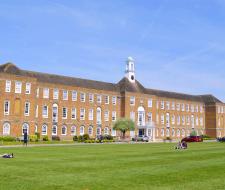 Program namedateAgeFeesShow all courses (4)Primary schoolLast booking 3 weeks agoAll year round6-11
Program namedateAgeFeesShow all courses (4)Primary schoolLast booking 3 weeks agoAll year round6-11
Primary education abroad is the best way for your child to learn a foreign language quickly and easily. Studying abroad from an early age will allow him to quickly adapt to the local education system and build a foundation of knowledge and diligence that will help him later enter a good university and build a successful career.
You can receive your secondary education abroad from the age of 5 to 18. There are no exams or preparation for admission to any stage except the last one. It is believed that young children quickly adapt to their environment and the rapid changes in their surroundings.
The following points should be taken into account when choosing.
- School goals. Some prepare their children intensively for entry into world-renowned universities and count their scores. Others are concerned with identifying and developing each child's personality and talents. Your view of education must be consistent with school policy or your child may be on the wrong path. Choosing a foreign school
- Cost of education. Private schools in Europe, especially in the UK, are considered the most expensive. This is followed by the United States and Canada. Lower in price ranking - Turkey, Brazil, India and schools in Eastern and Southern Europe - Czech Republic, Serbia, Portugal, Spain.
- Full board or partial board. If you plan to take your child on a weekend, the cost will be reduced by a quarter. Please note that in some countries/regions this system is possible if one of the parents lives in the same country/region.
- Study orientation, prestige of the diploma. The International Baccalaureate (IB) program is a red thread that runs through foreign education systems. The essence of the IB is globalization and the absence of government restrictions on university admissions. The IB Diploma is recognized by most foreign universities and it does not matter what country the school certificate was earned in. If a family has not yet decided on a future place of residence but wants to ensure that their child has the opportunity to attend a university in any country, then you should definitely choose a school that prepares you for the IB exams. In the United States and Canada, IB diploma holders do not pass university entrance exams. The only requirement is the level of achievement in the required subjects.
In countries where English is not the official language, you can get a quality education in this language. For example, schools in Brazil, India, Portugal, Denmark, and Turkey offer such opportunities. And the cost of their education is much lower, some of them are free after obtaining citizenship.
If the cost of a year in an English-speaking school is prohibitive and the desire to teach your child in an English-speaking country is strong, consider a school in Scotland or Ireland. English (as with other levels of education) is only inferior in cost to institutions in London and Manchester.
Alternative destinations
Benefits of Studying Abroad
- Language and daily, cultural adaptation
Teaching your child English like everyone else is not only faster but easier when immersed in the language: not only do you remember phonetic structures in the classroom, but also speech etiquette during games and walks without additional instructions. But the main thing that gives studying abroad is that the habit of thinking in a foreign language comes quickly. This is what allows you to learn language skills at the level of your native language, and then successfully master the course and pass the entrance certificate exam.
Changing habitual living conditions, the system of interpersonal relationships can be painful for adults, and when moving to another country it can sometimes interfere greatly with studies or careers. But for elementary school students, it is much easier to get used to the national characteristics of a foreign country: the local cuisine, daily etiquette, and currency are taken for granted.
- Excellent organization, thoughtful and modern curriculum
The organization of education in Western countries is strictly controlled by various government agencies. The number of students in the classroom, hygiene standards, technical equipment of educational institutions, teaching aids - everything is aimed at the most comfortable stay in the school.
The principles of teaching in foreign schools: the number of teaching materials is strict, priority is given to subjects and information of practical importance. Education are characterized by constant education in teamwork, leadership skills.
Special attention is paid to the ability to discover, assimilate necessary information, generalize and draw conclusions. Essay writing skills, research papers will be useful in passing exams.
- Student health care
A foreign school in Europe is known for its attention to the health of children, especially for problems that arise during studies: curvature of the spine, visual impairment. National inspection bodies strictly monitor changes in students' physical parameters: school furniture and teaching aids are constantly checked for compliance with standards.
- Comprehensive development of primary school students
The learning process in European schools involves the overall development of the pupils. Students are working carefully to familiarize themselves with various artistic fields: painting, graphics, dance, vocal music. Various sports, even elite ones, are being developed: cycling, tennis, yachting.
- A comfortable psychological environment
The teaching methods for children are chosen according to their age. Elementary school preparation is characterized by the choice of lively, non-boring formats - walks, use of playful methods, addition of task elements. Classes have a smaller number of students, so more attention is paid to each student. The attitude towards students is friendly, they are considered and trusted.
- Attention to individual characteristics
Teaching methods abroad include various methods of explaining material and developing skills, depending on individual characteristics.
- Programs adapted specifically for foreigners
For children, entering a European school is usually complicated by insufficient knowledge of the language, because the methods of teaching foreign languages to children in our country are not as good as in the West. There are different ways to get out of this situation: find an experienced tutor, communicate with native speakers (you can do it online). European educational institutions offer their own solution to this problem: adaptation programs for foreigners students. At the primary and secondary school level, the readiness of the child to learn is checked at the entrance. If the student is not ready, they accept him, but at first they learn only the language, and then gradually introduce other subjects. This approach allows children to enter the foreign language learning process the fastest.
- Quality career guidance
European schooling is also characterized by the fact that specialization here starts very early, at the age of 12-13. Parents believe that at this age a person cannot choose the field of his future career, but teachers, psychologists and university staff are working on it abroad. Children take career guidance tests, meet with representatives of various types of universities, they are informed about current trends in the field of careers and recruitment.
Primary School Tuition
Many parents choose to receive their education in Europe and the United States. The schools are comfortably located - for many parents, it is important that their children are close to home. Some families own real estate in Europe and the United States, and local schools offer the opportunity to live in the country and receive a complete basic education.
However, the key factor in choosing a school is, of course, the cost of an English language education. The quality of education in schools is recognized worldwide.
Schooling offers the opportunity not only to further study at one of the world's leading universities, but also to enter a state university. In some countries, completing a course at a local school offers the opportunity for free undergraduate studies.
Tuition fees: from €28,000 per year.
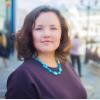
What are the most important factors parents should consider when choosing a school?
Most often, parents are interested in the results of admission, that is, the end result - where the child can go after graduation. The ethnic composition, living and learning conditions are also important.
What is the age of learning in elementary school?
The typical age range for elementary school students is usually between 5 and 11 years. However, this may vary slightly depending on the country or education system.
What subjects are taught in elementary school?
Subjects taught in elementary school typically include core subjects such as math, language arts (including reading, writing, and grammar), science, and social studies. In addition, students may take classes in physical education, art, music, and sometimes foreign languages.
Are there any standardized tests or assessments in primary education?
Standardized tests or assessments are widely used in primary education to measure student performance and identify areas for improvement. These tests may vary from region to region or country to country, but in general they assess students' proficiency in subjects such as mathematics and linguistics.
How long is the school day in elementary school?
The length of the school day in elementary school varies, but is usually between 5 and 7 hours, including recess and lunch time.
Do elementary schools offer extracurricular activities or clubs?
Many elementary school offer extracurricular activities or clubs to improve student achievement and provide opportunities for socializing. These activities may include sports competitions, arts and crafts clubs, chess clubs and various hobby clubs that allow students to explore their passions and develop new skills.
How are students assessed in primary education?
In primary education, students are assessed through a combination of teacher assessments, tests, quizzes, projects and homework. Grades are often based on a holistic assessment of their performance, taking into account their understanding of subject matter, class participation and overall performance. It is important not to pressure the child with grades and to allow room for creativity.
Are there any special education programs or support services available in elementary school?
Elementary schools often provide special education programs and support services to meet the needs of students with a variety of disabilities that may make learning difficult. These programs may include specialized instruction, individualized learning plans, classes with trained professionals, or additional resources to help students overcome challenges and reach their full potential.
How does modern technology help in primary education?
Technology is playing an increasingly important role in primary education. Schools often integrate technology into the curriculum to enhance learning. Students can use computers, tablets or other devices for research, educational games, online resources or collaborative projects, giving them valuable digital literacy skills.
How do elementary schools develop creativity and critical thinking skills?
Elementary school emphasize the development of creativity and critical thinking skills. Teachers encourage students to think independently, solve problems and express their ideas through a variety of activities such as group projects, practical experiments, discussions and creative assignments. These approaches develop curiosity, innovation and the ability to critically analyze information.
Are any field trips or educational excursions organized for elementary school students?
Field trips and educational picnics are particularly common in elementary school to enrich students' learning experiences outside the classroom. These trips may include visits to museums, historical sites, nature preserves, science centers, and other appropriate locations. Field trips provide opportunities for hands-on learning, awaken students' interests, and deepen their understanding of various subjects.
Learning programs-summary information
| Name | Meaning | Equivalent | Min. age | Duration, years |
Next stage | Cost |
|---|---|---|---|---|---|---|
| GCSE | General certificate of secondary education | secondary education (non-accomplished) | 14 | 1–2 | A-Levels | 15,000 USD+ |
| A-Levels | Advanced level | secondary education (accomplished) | 16 | 2 | University | 15,000 USD+ |
| BTEC | Business and Technology Education Board | secondary special education | 14 | 2–3 | University/ work | 15,000 USD+ |
| Oxbridge Preparation | Preparing for Oxford and Cambridge | secondary education (accomplished) | 17 | 1 | University | 15,000 USD+ |
| International Baccalaureate | International baccalaureate | secondary education (accomplished) | 16 | 2 | University | 18,000 USD+ |
| Foundation/ Pathway Year | Preparatory year | admission to the 1st year of university | 17 | 1 | University | 14,000 USD+ |
| NCUK | The Northern consortium | 2 year university | 17,5 | 1 | 2 year University of NCUK | 13,000 USD+ |
| Special Preparation (Medics/Math/Business) | Specialized training | - | 14 | optional | optional | 4,000 USD+ |
| Academic English | Academic English | Language school | 8 + | 6–12 months | School or University | 8,000 USD+ |
Advantages and disadvantages of English schools
| Advantages | Disadvantages |
|---|---|
| The opportunity to enter the best universities in England, USA, Canada, Switzerland, Europe, the world | Expensive |
| High quality of education and academic standards | Strong workload |
| Perfect English after graduation | The need to change the social environment; it takes time to adapt |
| Useful contacts | The difficulty of choosing the most suitable school for the child, requires a qualified specialist |
Top 21 boarding colleges in England 2026
| 1 | Cardiff Sixth Form College |
| 2 | National Mathematics and Science College |
| 3 | Abbey College Cambridge |
| 4 | d'Overbroeck's College |
| 5 | MPW London |
| 6 | CATS Cambridge |
| 7 | Kensington Park |
| 8 | DLD London |
| 9 | King's College St Michael’s |
| 10 | Bellerbys Cambridge |
| 11 | Chelsea Independent College |
| 12 | MPW Cambridge |
| 13 | Bellerbys Brighton |
| 14 | CATS London |
| 15 | St Clare's Oxford |
| 16 | Bishopstrow College |
| 17 | CATS Canterbury |
| 18 | Bellerbys London |
| 19 | Ealing Independent College |
| 20 | Cambridge Tutors College |
| 21 | Abbey Manchester |
